Man hatte Vergnügen an der Selbstdarstellung der Länder und fieberte mit wie bei einem Fußballspiel. Ähnlich wie der Fußball mit seinen austauschbaren Legionären ist der Songcontest inzwischen über weite Strecken entnationalisiert und homogenisiert. Während es noch bis in die Achtziger Jahre hinein üblich war, [2] in der Landessprache zu singen, sind heute nahezu alle Beiträge auf Englisch, [3]der lingua franca des Imperium Americanum. Das Personal fällt durch Beliebigkeit und Austauschbarkeit auf, und die oft am Reißbrett, nach rein kommerziellen Gesichtspunkten entworfenen Liedchen und Rennpferdstars sind in der Regel schnell vergessen.
Hinzu kommt, daß die Kunst des „Schlagers“, der gepflegten Schnulze, oder wie man einst veredelnder sagte: des „Chansons“ schon lange im Verfall begriffen, nur mehr ein bestenfalls nostalgischer Witz ist. Wenn der Song Contest früher in seinen besten Momenten „High Camp“ war (ich denke etwa an Udo Jürgens, ABBA, France Gall, Johnny Logan, Waterloo oder die entzückende Nicole, [4] damals in den Goldenen Achtzigern, als die Welt noch in Ordnung war, zumindest für mich), so ist er heute allenfalls „Trash“, und als solcher wird der dort dargebotene Totaldreck (da nützt auch die ab und zu wieder hervorgekramte Landessprache [5] nix mehr) wohl auch von den meisten verbliebenen Zuschauern rezipiert, ganz nach dem Motto „so schlecht, daß es schon wieder gut ist“.
Meinen letzten Songcontest habe ich 1988 gesehen, im Alter von zwölf Jahren. Damals ging der Austropopper Wilfried mit einer grauenerregenden, sperrholzartigen Nummer namens „Lisa, Mona Lisa“ [6] für Österreich ins Rennen. Ich wollte unbedingt, daß mein Land gewinnt, und schaffte es sogar, mir das Lied aus rein patriotischen Gründen schönzulügen, somit die Politik über die Ästhetik und den guten Geschmack siegen zu lassen (das passiert mir heute hoffentlich nicht mehr). Wilfrieds Auftritt wurde zum semi-legendären Desaster, mit „zéro points“ für’s gedemütigte Vaterland, und ich weinte gar bittere Tränen.
Die Enttäuschung war so traumatisch, daß ich seither nie wieder zugeschaut habe, auch wenn im Folgejahr ein Genie namens Thomas Forstner mit einer Dieter-Bohlen-Komposition immerhin Platz 5 erklomm (nur um zwei Jahre später abermals als Schlußlicht zu enden). 1990 kam dann eine Austro-Piaf namens Simone mit dem zeitgeist-adäquaten Superhit „Keine Mauern mehr“ (Platz 10), und in den Folgejahren gleich zweimal hintereinander ein drogensüchtiger Prolo namens Tony Wegas (Platz 10 und 14), der später damit Schlagzeilen machten, daß er alten Damen die Handtaschen stahl (kein Witz). Alles, was nachher kam, ist meinem Trivia-Gedächtnis entfallen.
Jedenfalls gibt es wohl keinen normalen Menschen über zwölf, der den Songcontest in irgendeiner Weise ernst nimmt: das ganze ist, wie gesagt, Camp, Trash, Kitsch, „tongue in cheek“, „Kult“, und insofern war es konsequent, daß Österreich 2003 einen Kabarettisten mit einem gezielt idiotischen Scheißdrauf-Titel [7] in die Manege geworfen hat. Besagter Alf Poier war auch einer der wenigen, die es wagten, über den diesjährigen Kandidaten, ein Lebewesen, das sich „Conchita Wurst“ [8] nennt, zu lästern. [9]
„Wenn jemand nicht weiß, ob er ein Manderl oder ein Weiberl ist, dann gehört er eher zum Psychotherapeuten als zum Song Contest“, so Poier im Interview mit „Die ganze Woche“.
„Mit dieser verschwulten Zumpferl-Romantik kann ich nichts anfangen. Wie jemand seine Sexualität auslegt, ist jedem selbst überlassen. Aber dass ständig an die große Glocke gehängt werden muss: ‚Ha, wir sind so benachteiligt … und wir sind eine Minderheit‘, dieses Gesülze geht mir ordentlich auf den Wecker“, echauffierte sich der 47-Jährige im Gespräch mit der Wochenzeitschrift.
Ich habe keine Ahnung, ob und inwiefern Tom Neuwirth alias Conchita Wurst, geboren im Jahr von Wilfrieds epochaler Niederlage, therapiebedürftig ist; dem Vernehmen nach versteht er sich als „Travestiekünstler“ und die Wurst als „Kunstfigur“, und das ist im Showbusiness ja nun wirklich nicht etwas rasend Neuartiges. Gerade im Hinblick auf den Anlaß ist das „aa scho wuascht“, denn der Songcontest ist derzeit ohnehin die nach dem Christoper-Street-Day schwulste Veranstaltung der Welt. [10]Daß Camp und Trash gerade unter Schwulen äußerst beliebt sind, ist allgemein bekannt. Insofern ist „Conchita“ im Eurovision-Spektakel bestens aufgehoben.
Hier könnte man die Geschichte stehen lassen, wenn nicht das Wurst-Stück von Anfang an als ein Kulturkampfmanöver inszeniert worden wäre, und Neuwirths Sieg in Kopenhagen nicht abgefeiert werden würde, als hätte eine Marslandung oder ein humanitärer Evolutionssprung stattgefunden. In den letzten Wochen konnte man dem aufsässig gestylten, vollbärtigen Genderbender-Gesicht mit den langen Wimpern kaum entkommen. Die Verantwortlichen im ORF hatten die Wurst ohne den sonst üblichen Publikumsvorentscheid ausgewählt, was auf eine bewußt eingefädelte Sache hindeutet.
Was nun am Outfit der Wurst-Gestalt nicht zufälligerweise ins Auge springt, ist die gezielt disharmonische Kombination von schroff entgegengesetzten Geschlechtsmerkmalen: die fast schon magersüchtig schlanke Figur, die schön gefönten, seidig glänzenden Haare, die großen, stark geschminkten Kulleraugen treffen auf einen dunklen, hypermaskulinen Vollbart. G’schmackig! Das ist auch gemessen an Transvestiten- und Drag-Queen-Standards ungewöhnlich, und ein optisch ziemlich krasser Eingriff.
Er erzeugt einen ambivalenten Reiz, der auf die meisten Menschen wohl eher unästhetisch und abstoßend wirkt. In einem ganz schlichten, quasi chemischen Sinne: geschlechtliche Reize funktionieren über Polarität, Polarität ist die Bedingung der geschlechtlichen Anziehung; ich kann mir nicht aussuchen, wen ich erotisch abstoßend oder anziehend finde oder nicht. Das ist eine schlichte Tatsache, eine alltägliche Erfahrung, die jeder Mensch an sich beobachten kann (ich für meinen Teil kann mir die Visage der Wurst keine zwei Sekunden lang ansehen, ohne daß mir physisch schlecht wird), und die über dem ganzen Geschwätz über das Phantom „Homophobie“ seltsamerweise völlig ignoriert wird.
Die exquisite, kalkulierte Scheußlichkeit der „Conchita Wurst“-Figur geht weit über das Spiel mit der Androgynität hinaus, wie man es von sexuell ambivalenten Popstars wie David Bowie, Boy George oder Annie Lennox kennt, die man durchaus schön und verführerisch finden kann. Den Geschmack am Grellen, Dekadenten und Paradiesvogelhaften freilich vorausgesetzt, und der ist nicht jedermanns Sache. Aber auch in dieser Sparte ist die Wurst eine eher zwei- bis drittklassige Figur. Der „Glamour“ bleibt eine Behauptung, ein bemühtes Klischee, ist wie der an James-Bond-Titel erinnernde Siegersong [11] ein Zitat von einem Zitat, ein Abklatsch von einem Abklatsch.
Das Liedchen mag besser sein als der durchschnittliche Müll, der auf dem Songcontest serviert wurde, wesentlich besser (oder schwuler) als, sagen wir, Thomas Forstners Meisterstück von 1989 [12]ist es aber im Grunde auch nicht. Jedenfalls kann ich hier kein überragendes Talent erkennen; die Stimme ist fast ebenso grauenhaft wie das restliche Gesamtkunstwerk. Sogar der einen Pornowitz suggerierende Name „Conchita Wurst“ ist häßlich, mixt das Exotische mit dem Profanen, und auch das wohl mit Kalkül. Grind-o-rama de luxe!
 Dafür steht „Conchita Wurst“ der Wille zur Provokation, Konfrontation und Polarisierung buchstäblich ins Gesicht geschrieben. So mancher, der den Hype der letzten Wochen mitverfolgt hat, wird wohl zurecht den Verdacht geschöpft haben, daß hier eine Art Testballon oder Lockvogel vorgeschickt wurde, um zu prüfen, ob sich nicht ein paar auswertbare „homophobe“ Reflexe hervorkitzeln lassen. Man wollte sichtlich die „Toleranz“-Kapazität des Publikums auf die Probe stellen. Und dazu bedurfte es eines etwas stärkeren Tobaks als üblich, denn Schwule und Transvestiten an sich sind weißgott keine Seltenheit im Fernsehen.
Dafür steht „Conchita Wurst“ der Wille zur Provokation, Konfrontation und Polarisierung buchstäblich ins Gesicht geschrieben. So mancher, der den Hype der letzten Wochen mitverfolgt hat, wird wohl zurecht den Verdacht geschöpft haben, daß hier eine Art Testballon oder Lockvogel vorgeschickt wurde, um zu prüfen, ob sich nicht ein paar auswertbare „homophobe“ Reflexe hervorkitzeln lassen. Man wollte sichtlich die „Toleranz“-Kapazität des Publikums auf die Probe stellen. Und dazu bedurfte es eines etwas stärkeren Tobaks als üblich, denn Schwule und Transvestiten an sich sind weißgott keine Seltenheit im Fernsehen.
Es muß auch eine Art Test gewesen sein, wie häßlich die Kröte inzwischen sein kann, die man dem Publikum zum Schlucken servieren darf. Was auch relativ widerspruchslos geschah, denn zu einer Kampagne wie dieser gehört die ständig im Raum stehende Drohung, als intolerantes „homophobes“ Arschloch dazustehen, wenn man sich den etwaigen Brechreiz in irgendeiner Weise anmerken läßt. Man erinnert sich in Österreich auch noch, mit welchem „Shitstorm“ etwa Niki Lauda in die Knie gezwungen wurde [13], weil er zugab, daß er „schwules Tanzen“ im öffentlich-rechtlichen Fernsehen geschmacklos findet.
Alle, wirklich alle Medien, von der als achso „populistisch“ und „reaktionär“ verschrieenen Kronen-Zeitung aufwärts, beteiligten sich an diesem Spiel, so zu tun, als hätte man hier das Normalste oder wenigstens Coolste auf der Welt vor sich. Diejenigen, die auf „homophobe“ Muckser gelauert haben, warteten vergeblich. Da mußte man schon in Facebookseiten oder Kommentarspalten oder meinetwegen ein paar Krone-Leserbriefen stierln. Poiers Stimme war in diesem Klima eine einsame Provokation.
Wer Antennen für den metapolitischen Gehalt der Wurst-Kampagne hatte, konnte ihren Subtext kaum übersehen. Werner Reichel [14]beschrieb es gut auf dem Blog von eigentümlich frei:
Wurst ist ein öffentlich-rechtlicher Werbeträger für die Gender-Mainstream-Ideologie. Ein Staatskünstler durch und durch. Die schrille Kunstfigur soll den Beweis liefern, dass man Geschlechterrollen und -identitäten annehmen und wechseln kann, wie es einem gerade beliebt. Man nutzt den Aufmerksamkeitseffekt, den ein bärtiger Transvestit generiert, um einem möglichst großen Publikum mitzuteilen, dass dies der neuen gesellschaftlichen Norm entspricht. Die Wurst als leuchtendes Vorbild und Prototyp des neuen Menschen, wie ihn sich die neosozialistischen Gesellschaftsingenieure erträumen.
Der Song-Contest-Auftritt von Conchita Wurst wird deshalb als mutiger Kampf für mehr Toleranz und Offenheit inszeniert. Das funktioniert auch ganz gut. In Kopenhagen sorgt sie/er für Aufsehen, wie der ORF nicht müde wird zu berichten. Nur eines läuft nicht ganz so wie gewollt. Wer „kämpft“, der braucht zwingend auch einen Gegner, einen Feind. Doch daran mangelt es der Wurst und dem ORF. Schließlich rennt man ohnehin nur offene Türen ein. Schwulsein wird im politisch-korrekten Europa ohnehin von den neosozialistischen Meinungsführern als cooler, bunter und erstrebenswerter Lifestyle verkauft, ganz im Gegensatz zur miefigen Heterofamilie, der Brutstätte von (häuslicher) Gewalt, rechtem Gedankengut und anderen grauslichen Dingen.
Der ganze Gehalt der Wurst’schen Agenda liegt nach dem Schlagersieg in Kopenhagen offen zutage. Bundespräsident Fischer himself, ein mit Gauck vergleichbarer, rückgratsarmer Parteisoldat und Opportunist ließ verlauten:
Ich gratuliere Conchita Wurst zu ihrem Sieg beim Eurovision Song Contest! Das ist nicht nur ein Sieg für Österreich, sondern vor allem für Vielfalt & Toleranz in Europa. Dass sie ihren Sieg all jenen widmete, die an eine Zukunft in Frieden & Freiheit glauben, macht ihn doppelt wertvoll. Ein schöner Tag für Österreich! Herzliche Gratulation!
Schau an! Es ging also um „Frieden & Freiheit“ und „Vielfalt & Toleranz in Europa“ und nicht um die Prämierung einer mittelmäßigen Schnulze in einem schundigen Wettbewerb (einem „Schas“ laut ORF-Kommentator Andi Knoll). „Conchita“ selber schätzt „ihren“ Beitrag zum Fortschritt der Menschheit nicht weniger bescheiden ein. „Ihr“ (etwas kryptischer) Kommentar:
This night is dedicated to everyone who believes in a future of peace and freedom. You know who you are – we are unity and we are unstoppable.
Halleluja! Frieden und Freiheit! Na doll! Wer kann da dagegen sein, außer ein paar verwarzte, fossilierte, homohassende Kanaillen??? Wir gehen herrlichen Zeiten entgegen! Dessen ist sich die Presse europaweit sicher:
Wer kann Tränen, Diva-Kleidern und einem Bart widerstehen – und Wursts Botschaft, dass der Sieg allen gehört, die sich „Frieden und Freiheit“ wünschen? (Berlingskie Tidende, Kopenhagen)
Eine Ohrfeige für die Homophoben in Europa. (Aftenposten, Oslo)
Ich bin so froh, dass meine Kinder in einer Zeit leben, in der Conchita und nicht Hitler Österreich repräsentiert. (The Independent, London)
Das Lied war nicht schlecht, und ich freue mich, daß es Putin und seinesgleichen den Finger zeigte. (The Guardian, London)
Hinter diesem Bart steckt eine Botschaft der Toleranz. (ABC, Madrid)
Der Leckerbissen des Tages sind aber für mich die Rhapsodien von Karl Fluch im heutigen Standard. Der hatte bereits in der Wochenendausgabe des linksliberalen Flaggschiffs den Songcontest zur „Toleranzprüfung“ erklärt, und in Visionen von einer erlösten Welt geschwelgt:
Thomas Neuwirth vermittelt als Conchita Wurst eine Diversität, die für sehr viele (Sag bloß!- M.L.) ein Normalzustand ist. Und wenn es dereinst für alle Normalzustand ist, dann wurde zumindest eine Eurovision Wirklichkeit.
Jeder soll hier zeigen dürfen, was für ein fortschrittlicher Preisdemokrat er ist, denn:
Wie ein schwuler Mann mit Bart in Frauenkleidern die Toleranz in osteuropäischen Ländern auf die Probe stellt, das war britischen Blättern wie dem Guardian Geschichten wert, auch die FAZ und der Spiegel berichteten. Dabei ging es weniger um die Musik, sondern um die Wogen der Entrüstung aus tendenziell wenig toleranten Ländern. Der Kanon: Je autoritärer regiert wird, desto größer ist die Ablehnung. Wer hätte das gedacht?
Da ist unversehens wieder die Katze aus dem Sack gelassen: der Autor tut unter der Hand so, als ob „Toleranz“ und die Anerkennung einer Sache als „Normalzustand“ ein- und dasselbe wären. In Wahrheit ist aber das Gegenteil der Fall. Etwas, das als „Normalzustand“ angesehen wird, muß ja nicht mehr toleriert werden. Den Priestern und Kommissaren des „Toleranz“-Kultes geht es nicht darum, daß eine Sache bloß geduldet wird, sie soll auch innerlich komplett angenommen und assimiliert, die Gefühle und Wahrnehmungen selbst sollen umgepolt werden. Das kann bei abweichenden Sexualformen wegen des Polaritätscharakters der Sexualität aber niemals restlos der Fall sein.
„Conchita Wurst“ spielt in dieser kulturpolitischen Agenda die Rolle eines Akklimatisierungsfreaks, der das Publikum nach dem ersten Schock an noch extremere Formen der Geschlechteridentitätsinszenierung gewöhnen soll. Die Frage, die ich mir hier immer stelle, ist: Warum? Wozu? Was erwarten sich Leute wie Fluch von der Erfüllung einer solchen Utopie? Selbst wenn es funktionieren sollte, wozu soll es gut sein? Ich verstehe es nicht.
Wozu die allgemeine Verbürgerlichung der Freaks und Freakisierung der Bürger? Fließen dann Milch und Honig, wird alles regenbogenbunt, sind dann alle glücklicher, bricht der Weltfrieden aus? Ist das realistisch, ist das gesellschaftspolitisch, ist das ästhetisch zu rechtfertigen? Welcher erwachsene Mensch glaubt denn ernsthaft an solche Spinnereien?
Und noch eine, vielleicht blöde Frage: wenn all diese Dinge zum „Normalzustand“ würden, ginge dann nicht auch der ganze Spaß und Thrill an der Abweichung und Exzentrik, der Leute wie Tom Neuwirth offensichtlich beflügelt, verloren? Letzter will ja offensichtlich nicht „normal“ sein, sondern ein Star, ein Paradiesvogel – und das sei ihm gegönnt. Wenn jede Grenze gefallen, wenn alles „überschritten“ ist, wo bleibt dann die Erotik des Überschreitens?
Ich schließe mich hier Jim Goad [15]an:
I remember back when public shaming was largely aimed at the homos. Nowadays it’s the homos and their sob sisters who are eagerly doing most of the “outing” and public shaming. Either way, I’ll pass.
Not that anyone asked, but I preferred gay males when they were cultural outsiders who seemed impossible to offend. Nowadays they scream for mainstream acceptance and get offended at everything. Tsk-tsk, ladies! As outsiders, they used to see clearly through the idiocy of mass-culture moral panics. Now, as they squiggle and squirm to be accepted as “normal” rather than “different,” they fabricate their own humorless moral panics.
Zurück zur Wurst: Nachdem der „Test“ nun bestanden ist, bleiben keine Fragen mehr offen: „Toleranz als europäische Vision“ so der pathetische Titel des Artikels auf Seite 2 des heutigen Standards (ebenfalls von Meister Fluch), der die „bärtige Diva“ als „umjubelte Symbolfigur“ und ihren Triumph als gezielten Affront gegen osteuropäische „autoritäre“ Schurkenstaaten wie Rußland und Weißrußland feiert (übrigens wurden die russischen Contest-Teilnehmer in Kopenhagen ausgepfiffen, während die ukranische Vertreterin mit „starkem Applaus“ bedacht wurde).
Im Kommentar auf Seite 20 [17] läßt Fluch dann so richtig die Zügel schießen, und bringt das Märchen von der Welterlösung durch allgemeine Totalverschwulung in konzentrierter Form. Das funktioniert nur mithilfe diverser Pappkameraden und Vogelscheuchen. Wie üblich in „Verblendungszusammenhängen“ dieser Art stellt er dabei die Realität gleich mehrfach auf den Kopf. Das heißt, er muß als Akt der Widerstands und der Subversion inszenieren, was in Wirklichkeit alle maßgeblichen medialen und politischen Kräfte hinter sich hat:
Jetzt auch noch die Wurst. Als wäre Ö3 mit der wieder einmal entflammten Debatte um einen höheren Anteil heimischer Popmusik im Programm nicht schon genug beschäftigt, sich Ausreden einfallen zu lassen. Nein, jetzt gewinnt Österreich auch noch den Song Contest. Und blöderweise mit einem Lied, das wieder nicht formatradiotauglich ist.
Die Formatierung des Lebens ist aber nicht nur ein Problem von Berieselungssendern wie Ö3. Immerhin, den kann man abdrehen. Schlimm ist es, wenn die Politik die Erscheinungsformen des richtigen Lebens ignoriert oder sie in Formate pferchen möchte, die wie Korsetts wirken. Geformt und eng gebunden von einer Scheinmoral, die das moderne Dasein und seine Diversität nie verstanden hat und es deshalb als beängstigend wahrnimmt.
Strohmann No. 1: „Conchita“, die einer kleinen Subkultur entstammt, deren Lebensstil untypisch für die Mehrheit ist, ja die es als dezidierte „Kunstfigur“ gar nicht „gibt“, wird hier zum Paradigma der „Erscheinungsformen des richtigen Lebens“, des „modernen Daseins“ und der „Diversität“ (stöhn) [18]. No. 2: „Die Politik“ „ignoriert“ diese „Erscheinungsformen“ und findet sie „beängstigend“. Das ist eine steile These. Wer soll denn damit gemeint sein? Bundespräsident Heinz Fischer? [19] Der österreichische Nationalrat? [20] Das EU-Parlament in Brüssel? [21] Das Bundesministerium für Bildung und Frauen? [22] Die Familienpolitiker der ÖVP? [23] Die Wiener Sozialinfostellen? [24] Rätsel über Rätsel!
Weiter im Text:
Conchita Wurst ließ einen mit ihrem Sieg beim 59. Song Contest in Kopenhagen ein wenig Hoffnung schöpfen. Denn ihren Triumph verdankte sie nicht nur ihrer Darbietung. Der Zuspruch entsprang einer beispiellosen Solidarisierung mit einem Außenseiter. Die gängigen nationalen Rivalitäten des Song Contest schienen plötzlich weniger wichtig zu sein als das Abschneiden der falschen Dame mit dem richtigen Bart, die von konservativer Seite angefeindet worden war. Das war Millionen weltoffenen Menschen in Europa zu viel. Sie wollten ein Zeichen setzen, und das ist ihnen gelungen.
Na bitte, was für ein Schlachtengemälde: es ging nicht so sehr um die Musik, sondern um „ein Zeichen zu setzen“, um das Bekenntnis der „weltoffenen Menschen“ in Europa, die sich zu Millionen und Abermillionen solidarisch erhoben haben, und zwar aus empörtem Widerstand gegen nicht mehr erträgliche Anfeindungen von „konservativer Seite“, die in dem ganzen Rummel wohl kaum mehr als ein paar Piepser, vorzugsweise aus dem Osten, gewesen sein können, wenn nicht gar wichtige Ingredienzen der Gesamtinszenierung. Und wer nicht mit den „Weltoffenen“ [25] mitgejohlt hat, ist implicite ein mieser, rückwärtsgewandter, intoleranter, schlechter Mensch.
Denn kein Märchen ohne Feindbild, und das ist schnell gefunden (Strohmann No.3) – Konservative, Christen, Hinterwäldler:
Wursts Sieg wurde auch in Haushalte übertragen, in denen man sich wahrscheinlich bekreuzigt hat, als man ihrer zum ersten Male ansichtig wurde. Doch dieser bunte Vogel mit den langen Wimpern wurde von Europa nicht auf einen der hinteren Plätze verräumt, sondern auf Händen zum Sieg getragen. Wenn das einige Menschen zum Nachdenken angeregt hat, ist das ein weiterer Sieg, den sich die Wurst an die Brust heften darf. Ihr Beispiel zeigt: Homosexuelle sind keine wehrlosen Opfer, die man nach Lust und schlechter Laune diffamieren kann. Denn dann verscherzt man es sich möglicherweise mit sehr vielen Leuten.
Liegt es an mir, oder klingen die letzten Sätze nicht ein klitzekleines bißchen wie eine Drohung? In unseren Ländern wird zwar nicht „autoritär regiert“, aber wehe dem Abweichler, der nicht mit den Wölfen heult, mit den Schafen blökt und den Schweinen grunzt – er wird unweigerlich aus der Herde ausgestoßen werden. Um klarzumachen, daß heute beim leisesten „homophoben“ Muckser die Rosa Gestapo vor der Tür [26]steht, und man es sich insbesonders mit den Schreiberlingen von rosa Blättern und rosaroten Fernsehsendern und der Zuchtrute der roten „Antidiskriminierungsstellen“ [27], äh, „verscherzt“, dazu braucht es beileibe keine „Conchita Wurst“ – weder in Österreich noch sonstwo in der westlichen Welt, [28] wo „Homophobie“ zur Zeit das zweitschlimmste Verbrechen [29] nach „Rassismus“ [30] ist, und die hexenjagdartigen Diffamierungen die Schlagseite gewechselt haben.
„Nach Lust und schlechter Laune diffamieren“ kann dagegen jeder die sogenannten Konservativen, oder was er dafür hält, und das ganz ohne Folgen, vielmehr mit dem Applaus „sehr vieler Leute“, natürlich nur der schicken, fortschrittlichen, „modernen“ und sonstwie maßgeblichen. Und so werden sie wieder über die Bühne gejagt, die Finster- und Buhmänner, die in all dem Hype ohnehin kaum zu hören waren, keinen Mucks von sich zu geben wagten und eher noch beflissen gute Miene gemacht haben.
Das konservative Österreich, das sich sonst mit jeder neugeborenen Kuh im Stall ablichten lässt und jeden Kreisverkehr zur Eröffnung in Weihwasser ertränkt, ist schmähstad. Das muss man nicht überbewerten, aber es ist symptomatisch für das vorherrschende arrogant-ignorante Denken. Gleichzeitig stellen sich jene damit auf eine Stufe mit reaktionären Eiferern in so toleranten Ländern wie Russland, der Türkei oder Weißrussland.
Tiraden wie diese dienen nur dem Theatereffekt und sind ungefähr so sinnvoll und mutig, wie tote Karnickel auszupeitschen. Sie verschleiern die kaum mehr auf nennenswerte Widerstände treffende Machtfülle der gesellschaftspolitischen Agenda, die hinter dem „Conchita Wurst“-Phänomen stecken. In Wahrheit stehen die Tore sperrangelweit offen und werden kaum mehr verteidigt. Schließlich gerät Fluch endgültig ins Delirium und taucht in eine Parallelwelt ab (Strohmann No. 4):
Was die nicht verhindern können, schweigen sie tot. Eine Kunstfigur wie Conchita Wurst und ihre gesellschaftspolitischen Ansprüche werden stur ignoriert. Es wird nicht erkannt, wofür sie steht, geschweige denn geschätzt. Es gilt immer noch: Es darf nicht sein, was nicht sein darf.
Von „Totschweigen“ kann wohl kaum die Rede sein, wenn die Propaganda lauter dröhnt als der Niagarafall. Und: was sind denn nun die „gesellschaftspolitischen Ansprüche“ einer „Kunstfigur“(!), die so überlebenswichtig für den Rest der Welt sind, daß sie ein solches Pathos verdienen? Inwiefern beweist ihr Sieg bei einem Kommerz-Schnulzencontest irgendeine Relevanz dieser Ansprüche? Ich bin sicher, darauf könnte Fluch auch keine überzeugende Antwort geben. Hier ist einer besoffen von der Mystik eines epidemisch verbreiteten quasi-religiösen Kultes – anders kann man dieses Phänomen, das sich gegen jede Rationalität gepanzert hat, nicht nennen.
Federvieh wie dieses glaubt immer noch ernsthaft, gegen den Strom zu schwimmen, ohne wahrhaben zu wollen, daß es selbst schon Teil des Stroms ist. Das muß wohl mit den psychologischen Mechanismen linker Selbstbilder zu tun haben. Es ist freilich „symptomatisch“ für deren „arrogant-ignorantes Denken“, das sie wie immer auf den (echten oder auch nur eingebildeten) Gegner projizieren. Dergleichen steht völlig unverbunden neben widersprechenden Aussagen wie diesen, wo man sich siegesicher gibt, auch noch das letzte „reaktionäre“ Widersassengeröll wegzuspülen:
Wurst hingegen vermittelte in den letzten Tagen mehr Lebensgefühl als alle Europawahlplakate zusammen. Dazu muss man weder sie noch ihre Musik mögen. Aber sie steht innerhalb eines Wertespektrums, das für viele in Europa zum Glück schon als selbstverständlich gilt. Der Rest musste das am Samstag zur Kenntnis nehmen.
Das europäische „Wertespektrum“ der Zukunft verkörpert sich also in bärtigen Transen im Glitzerfummel, die sich „Conchita Wurst“ nennen und Plastikkitsch-Schlager trällern… noch bei Trost? Ich sag schon mal Gute Nacht, Europa. Sonst noch was? Daß diese Blase aus chronischer Tiefenbescheuertheit eines Tages platzen wird, diese Hoffnung gebe ich immer noch nicht auf….
Article printed from Sezession im Netz: http://www.sezession.de
URL to article: http://www.sezession.de/44978/die-metapolitische-bedeutung-der-conchita-wurst.html
URLs in this post:
[1] Image: http://www.sezession.de/44978/die-metapolitische-bedeutung-der-conchita-wurst.html/conchita
[2] Achtziger Jahre hinein üblich war,: http://de.wikipedia.org/wiki/Eurovision_Song_Contest_1983
[3] heute nahezu alle Beiträge auf Englisch, : http://de.wikipedia.org/wiki/Eurovision_Song_Contest_2014
[4] Nicole,: http://www.youtube.com/watch?v=GvD8Y6gr9lk
[5] hervorgekramte Landessprache: http://www.youtube.com/watch?v=L_W2tbW64pQ
[6] „Lisa, Mona Lisa“: http://www.youtube.com/watch?v=JJ_-kNC7Y_E
[7] gezielt idiotischen Scheißdrauf-Titel: http://www.youtube.com/watch?v=G-Qj5FVK5Cg
[8] „Conchita Wurst“: https://www.google.at/search?q=alf+poier&ie=utf-8&oe=utf-8&aq=t&rls=org.mozilla:de:official&client=firefox-a&channel=sb&gfe_rd=cr&ei=0W9wU87EEeqg8wfYi4HIBw#channel=sb&q=conchita+wurst&rls=org.mozilla:de:official
[9] zu lästern. : http://diepresse.com/home/kultur/popco/3801135/Song-Contest_Alf-Poier-wettert-gegen-Wurst?_vl_backlink=/home/index.do
[10] schwulste Veranstaltung der Welt. : http://www.news.at/a/song-contest-wurst-interview-news
[11] erinnernde Siegersong: http://www.youtube.com/watch?v=SaolVEJEjV4
[12] Thomas Forstners Meisterstück von 1989 : http://www.youtube.com/watch?v=RmE6XdVShvw
[13] Niki Lauda in die Knie gezwungen wurde: http://derstandard.at/1295570673764/ORF-Dancing-Stars-Niki-Lauda-empoert-sich-ueber-schwules-Tanzen
[14] Werner Reichel : http://ef-magazin.de/2014/05/07/5308-eurovision-song-contest-homophobe-dringend-gesucht
[15] Jim Goad : http://takimag.com/article/arkansas_store_censors_elton_johns_designer_baby/print#axzz31PdxmyKw
[16] Image: http://www.sezession.de/44978/die-metapolitische-bedeutung-der-conchita-wurst.html/bbch
[17] Kommentar auf Seite 20: http://derstandard.at/1399507183320/Der-Triumph-eines-Gefuehls
[18] (stöhn): http://www.sezession.de/27442/kleiner-traktat-uber-die-vielfalt.html
[19] Bundespräsident Heinz Fischer?: https://www.facebook.com/heifi2010/photos/a.415979693452.206281.59810443452/10152479138828453/?type=1&theater
[20] Der österreichische Nationalrat?: http://www.hosiwien.at/historische-abstimmung-im-nationalrat-hosi-wien-uberreicht-allen-183-abgeordneten-rosa-punschkrapfen/
[21] Das EU-Parlament in Brüssel?: http://www.europarl.europa.eu/sides/getDoc.do?pubRef=-//EP//NONSGML+REPORT+A7-2014-0009+0+DOC+PDF+V0//DE
[22] Das Bundesministerium für Bildung und Frauen?: http://www.bmukk.gv.at/ministerium/vp/2013fs/20130523a.xml
[23] Die Familienpolitiker der ÖVP?: http://www.bmukk.gv.at/ministerium/vp/2011fs/20110516.xml
[24] Die Wiener Sozialinfostellen?: https://www.wien.gv.at/search?q=Homosexualit%C3%A4t&client=wien&proxystylesheet=wien&tlen=250&ulang=de&oe=UTF-8&ie=UTF-8&getfields=*&entsp=a__wiengesamt&site=wiengesamt
[25] „Weltoffenen“: http://antaios.de/buecher-anderer-verlage/aus-dem-aktuellen-prospekt/1468/jargon-der-weltoffenheit
[26] vor der Tür : http://www.telegraph.co.uk/news/religion/6424895/Pensioner-questioned-by-police-after-complaining-about-gay-pride-march.html
[27] „Antidiskriminierungsstellen“: http://www.wien.gv.at/menschen/queer/
[28] noch sonstwo in der westlichen Welt,: http://www.spiegel.de/netzwelt/netzpolitik/firefox-konzern-mozilla-chef-brendan-eich-zurueckgetreten-a-962497.html
[29] Verbrechen: http://takimag.com/article/racism_the_eighth_deadly_sin_jim_goad#axzz31PdxmyKw
[30] „Rassismus“: http://jungefreiheit.de/allgemein/2014/weiss-hat-immer-schuld/
[31] Bild Conchita Wurst: Wikipedia: http://de.wikipedia.org/wiki/Conchita_Wurst
[32] : http://
[33] : http://www.youtube.com/watch?v=FpLMw4dAZCM
[34] : http://www.spiegel.de/kultur/tv/wurst-triumph-beim-esc-russische-politiker-werden-ausfaellig-a-968777.html
[35] : http://www.youtube.com/watch?v=E6C3DmGVdB0
[36] : http://www.focus.de/kultur/musik/eurovision-song-contest/esc-2014-conchita-wurst-jury-sido-sido-sexuelle-gesinnung-spielt-ja-alles-keine-rolle_id_3837045.html
[37] : http://25.media.tumblr.com/tumblr_ltdzpaEhuL1qbno3ao1_500.jpg
[38] : https://www.youtube.com/watch?v=0pmqG8x3DH8
[39] : http://www.blick.ch/news/schweiz/neue-stop-aids-kampagne-so-viel-sex-wie-nie-zuvor-id2846609.html
[40] : http://www.lovelife.ch/de/
[41] : http://www.youtube.com/watch?v=5tn8mEk6r8I
[42] : http://karlheinzweissmann.de/symbolkunde.html
[43] : https://scontent-a-vie.xx.fbcdn.net/hphotos-prn1/l/t31.0-8/10355511_280127952160790_8811774119038288704_o.png
[44] : http://eulenfurz.wordpress.com/2014/05/12/hans-wurst/
[45] : http://www.google.de/imgres?imgurl=http%3A%2F%2Fupload.wikimedia.org%2Fwikipedia%2Fcommons%2F0%2F01%2FJosef_Unterberger_-_Christus_im_%2525C3%252584hrenfeld.jpg&imgrefurl=http%3A%2F%2Fcommons.wikimedia.org%2Fwiki%2FFile%3AJosef_Unterberger_-_Christus_im_%25C3%2584hrenfeld.jpg&h=591&w=912&tbnid=6fAUi-7_q6O5JM%3A&zoom=1&docid=EpxHGRO_rrjpgM&ei=aNVxU5aTMITT4QTEyYDQDA&tbm=isch&iact=rc&uact=3&dur=4809&page=1&start=0&ndsp=15&ved=0CFsQrQMwAQ
[46] : http://www.freitag.de/autoren/tsckaer/jesus-wurst-superstar
[47] : http://renepaulhenry.free.fr/conchita_jesus.jpg
[48] : http://sphotos-h.ak.fbcdn.net/hphotos-ak-frc3/t1.0-9/10256182_703609149680471_2409472717747911971_n.jpg
[49] : http://www.youtube.com/watch?v=piYvb6wtjZY



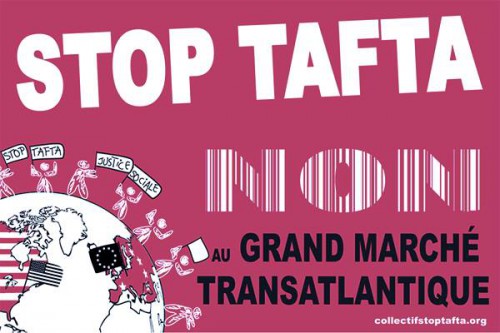
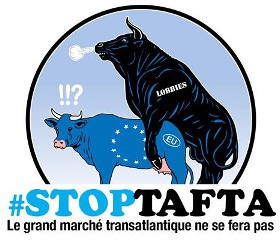 Desde junio de 2013 la Comisión Europea, órgano no electo pero con facultades para emprender iniciativas sobre política comercial, y el Departamento de Comercio de EEUU están negociando una Asociación Transatlántica para el Comercio y la Inversión (ATCI) o TTIP, según las siglas en inglés de Transatlantic Trade and Investment Partnership, que no se aprobará antes de 2016. La negociación corre a cargo de Karel de Gucht, comisario europeo de Comercio que está siendo investigado por defraudar 900.000 euros a las autoridades fiscales belgas y Michael Froman, por Estados Unidos, un tiburón neoliberal asesor de las cumbres del G8 y G 20.
Desde junio de 2013 la Comisión Europea, órgano no electo pero con facultades para emprender iniciativas sobre política comercial, y el Departamento de Comercio de EEUU están negociando una Asociación Transatlántica para el Comercio y la Inversión (ATCI) o TTIP, según las siglas en inglés de Transatlantic Trade and Investment Partnership, que no se aprobará antes de 2016. La negociación corre a cargo de Karel de Gucht, comisario europeo de Comercio que está siendo investigado por defraudar 900.000 euros a las autoridades fiscales belgas y Michael Froman, por Estados Unidos, un tiburón neoliberal asesor de las cumbres del G8 y G 20.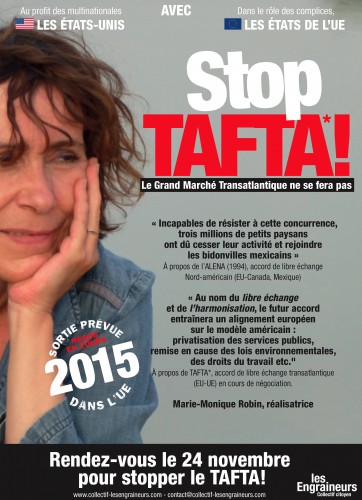

 del.icio.us
del.icio.us
 Digg
Digg


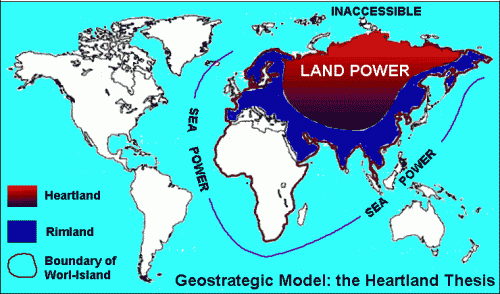
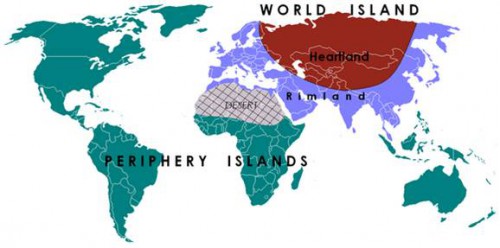
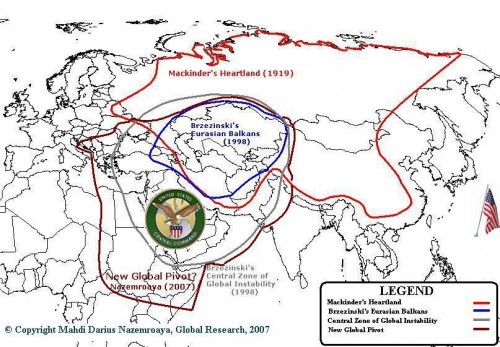

 Finalement c’est Thomas Neuwirth, surnommé « Conchita Wurst », ce dernier terme signifiant « saucisse » (tout un symbole), représentant autrichien à l’ « euro » vision, qui s’est imposé à l’issue de cette émission télévisée au soir de ce 10 mai 2014. Ce dernier s’est présenté en femme à barbe, une provocation que la Russie notamment avait peu appréciée. Sa nette victoire interroge. Il est en effet sur le papier douteux qu’un pays comme l’Irlande, où l’avortement est encore interdit, ait pu donner douze points à ce candidat, de même que la Grèce, où l’homosexualité est extrêmement mal vue, et d’autres pays d’Europe centrale et orientale.
Finalement c’est Thomas Neuwirth, surnommé « Conchita Wurst », ce dernier terme signifiant « saucisse » (tout un symbole), représentant autrichien à l’ « euro » vision, qui s’est imposé à l’issue de cette émission télévisée au soir de ce 10 mai 2014. Ce dernier s’est présenté en femme à barbe, une provocation que la Russie notamment avait peu appréciée. Sa nette victoire interroge. Il est en effet sur le papier douteux qu’un pays comme l’Irlande, où l’avortement est encore interdit, ait pu donner douze points à ce candidat, de même que la Grèce, où l’homosexualité est extrêmement mal vue, et d’autres pays d’Europe centrale et orientale. Avec le communautarisme, à savoir le choix de privilégier l’appartenance communautaire avant l’appartenance nationale, identitaire ou simplement culturelle, alors tous les votes de ce type sont profondément faussés et donnent un résultat qui n’a aucune signification mais qui est instrumentalisé par les journalistes et par certains politiciens pour faire croire que les vainqueurs sont représentatifs du peuple, alors qu’ils ne sont que l’égérie de minorités actives.
Avec le communautarisme, à savoir le choix de privilégier l’appartenance communautaire avant l’appartenance nationale, identitaire ou simplement culturelle, alors tous les votes de ce type sont profondément faussés et donnent un résultat qui n’a aucune signification mais qui est instrumentalisé par les journalistes et par certains politiciens pour faire croire que les vainqueurs sont représentatifs du peuple, alors qu’ils ne sont que l’égérie de minorités actives.
 Dafür steht „Conchita Wurst“ der Wille zur Provokation, Konfrontation und Polarisierung buchstäblich ins Gesicht geschrieben. So mancher, der den Hype der letzten Wochen mitverfolgt hat, wird wohl zurecht den Verdacht geschöpft haben, daß hier eine Art Testballon oder Lockvogel vorgeschickt wurde, um zu prüfen, ob sich nicht ein paar auswertbare „homophobe“ Reflexe hervorkitzeln lassen. Man wollte sichtlich die „Toleranz“-Kapazität des Publikums auf die Probe stellen. Und dazu bedurfte es eines etwas stärkeren Tobaks als üblich, denn Schwule und Transvestiten an sich sind weißgott keine Seltenheit im Fernsehen.
Dafür steht „Conchita Wurst“ der Wille zur Provokation, Konfrontation und Polarisierung buchstäblich ins Gesicht geschrieben. So mancher, der den Hype der letzten Wochen mitverfolgt hat, wird wohl zurecht den Verdacht geschöpft haben, daß hier eine Art Testballon oder Lockvogel vorgeschickt wurde, um zu prüfen, ob sich nicht ein paar auswertbare „homophobe“ Reflexe hervorkitzeln lassen. Man wollte sichtlich die „Toleranz“-Kapazität des Publikums auf die Probe stellen. Und dazu bedurfte es eines etwas stärkeren Tobaks als üblich, denn Schwule und Transvestiten an sich sind weißgott keine Seltenheit im Fernsehen.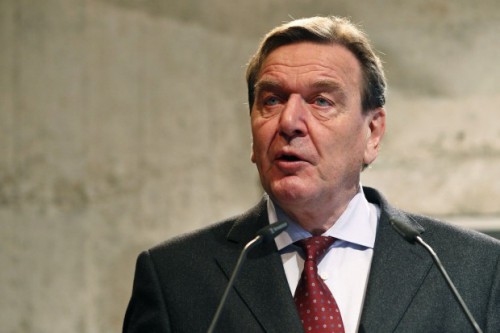
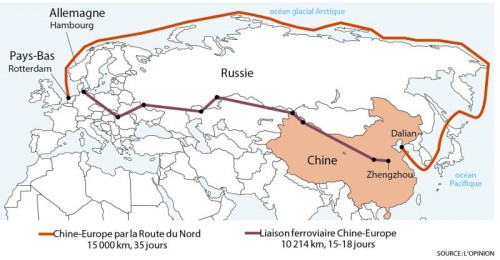
 Que nous arrive-t-il ? Tout d'un coup, nous comprenons. Non pas que nous n'avions pas compris mais il subsistait toujours un peu le doute, une interrogation. Qu'aurions-nous fait ? Dans quel camp aurions-nous été ? Que nous réserverait un jour l'histoire ? Nous avions tant lu sur la génération des années 30 de Maulnier à Aragon, de Cocteau à Malraux, de Drieu à Maurras, de Rebatet à Breton, de Bernanos à Sartre que nous sentions bien que leurs positionnements suivaient les aléas de l'Histoire, des familles, des générations politiques, de la clairvoyance intellectuelle, des idées prolétariennes ou bourgeoises voire même de l'avenir de la poésie. Cela nous fascinait.
Que nous arrive-t-il ? Tout d'un coup, nous comprenons. Non pas que nous n'avions pas compris mais il subsistait toujours un peu le doute, une interrogation. Qu'aurions-nous fait ? Dans quel camp aurions-nous été ? Que nous réserverait un jour l'histoire ? Nous avions tant lu sur la génération des années 30 de Maulnier à Aragon, de Cocteau à Malraux, de Drieu à Maurras, de Rebatet à Breton, de Bernanos à Sartre que nous sentions bien que leurs positionnements suivaient les aléas de l'Histoire, des familles, des générations politiques, de la clairvoyance intellectuelle, des idées prolétariennes ou bourgeoises voire même de l'avenir de la poésie. Cela nous fascinait.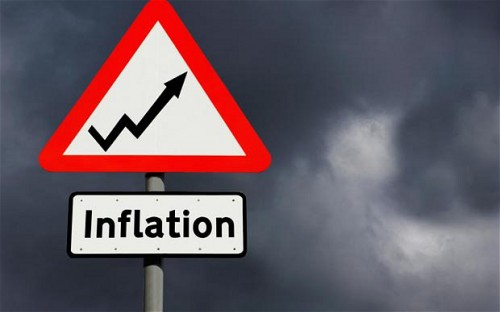

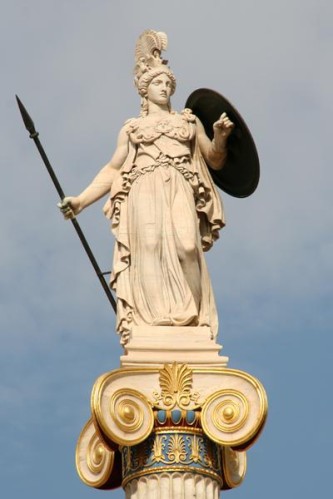



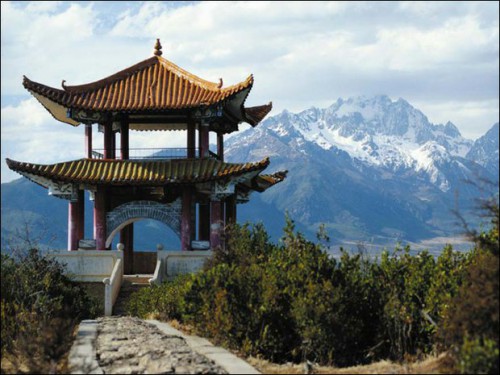

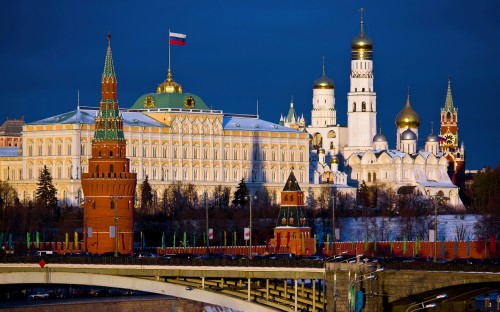
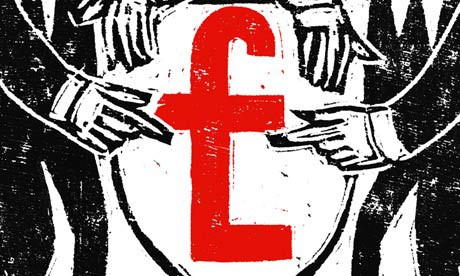
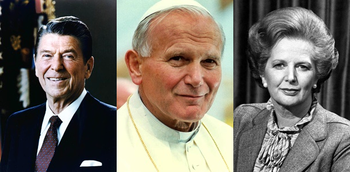 Calvi’s attempt to reconcile protestant and Catholic secret societies was a success. He became paymaster to the Polish Solidarity movement, while Nixon Treasury Secretary David Kennedy’s dirty Continental Illinois Bank served as conduit for CIA funds sent by Bank of Cicero asset Bishop Paul Marcinkus to fund Solidarity. [724] The Vatican teamed up with Europe’s Black Nobility, the Bilderbergers and CIA to launch the top-secret JASON Society and armed South American dictators to quash liberation theology. In 1978 when Pope John Paul II took power, the Vatican issued a commemorative stamp featuring an Egyptian pyramid and the Roshaniya all-seeing eye. [725] The Vatican and the Illuminati Brotherhood were reunited.
Calvi’s attempt to reconcile protestant and Catholic secret societies was a success. He became paymaster to the Polish Solidarity movement, while Nixon Treasury Secretary David Kennedy’s dirty Continental Illinois Bank served as conduit for CIA funds sent by Bank of Cicero asset Bishop Paul Marcinkus to fund Solidarity. [724] The Vatican teamed up with Europe’s Black Nobility, the Bilderbergers and CIA to launch the top-secret JASON Society and armed South American dictators to quash liberation theology. In 1978 when Pope John Paul II took power, the Vatican issued a commemorative stamp featuring an Egyptian pyramid and the Roshaniya all-seeing eye. [725] The Vatican and the Illuminati Brotherhood were reunited.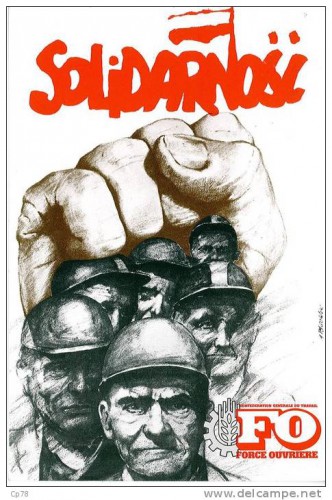 A component of the CIA destabilization program was to buy weapons from these East European nations to arm CIA-sponsored rebels in Nicaragua, Afghanistan, Angola and Mozambique, using BCCI and later BNL as conduits. The US also wanted to get their hands on the high-tech Soviet arsenal. Poland secretly sold the US an array of advanced Soviet weaponry worth $200 million. Romania did the same. Both countries saw their foreign debts reduced significantly. [728]
A component of the CIA destabilization program was to buy weapons from these East European nations to arm CIA-sponsored rebels in Nicaragua, Afghanistan, Angola and Mozambique, using BCCI and later BNL as conduits. The US also wanted to get their hands on the high-tech Soviet arsenal. Poland secretly sold the US an array of advanced Soviet weaponry worth $200 million. Romania did the same. Both countries saw their foreign debts reduced significantly. [728] In November 2001 Exxon Mobil announced plans to invest another $12 billion in an oil and gas project in the Russian Far East. RD/Shell announced a $8.5 billion investment in its Sakhalin Islands concessions. BP Amoco made similar proclamations. [734] In 1994 Lukoil pumped 416 million barrels of oil, making it fourth largest producer in the world after RD/Shell, Exxon Mobil and part-owner BP Amoco. Its fifteen billion barrels in crude reserves rank second in the world to Royal Dutch/ Shell. [735]
In November 2001 Exxon Mobil announced plans to invest another $12 billion in an oil and gas project in the Russian Far East. RD/Shell announced a $8.5 billion investment in its Sakhalin Islands concessions. BP Amoco made similar proclamations. [734] In 1994 Lukoil pumped 416 million barrels of oil, making it fourth largest producer in the world after RD/Shell, Exxon Mobil and part-owner BP Amoco. Its fifteen billion barrels in crude reserves rank second in the world to Royal Dutch/ Shell. [735]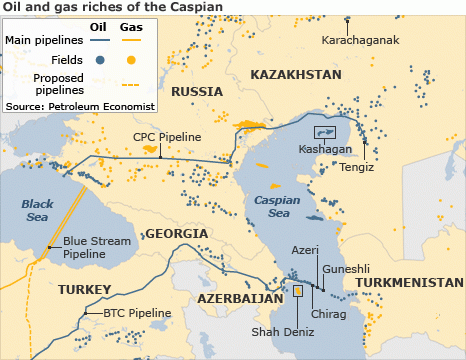


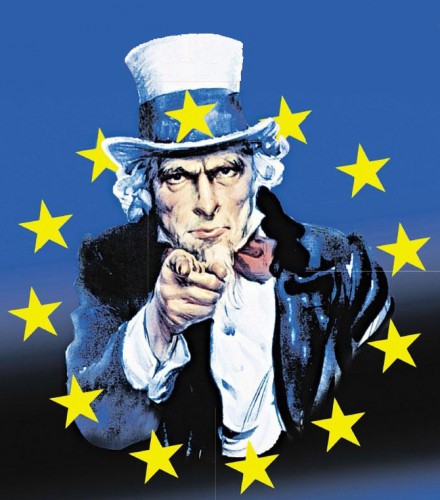
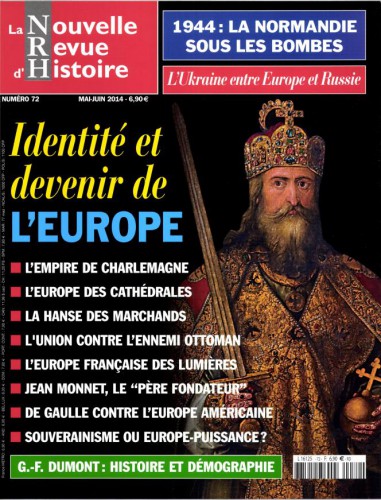
Le HuffPost/AFP
Ex: http://www.huffingtonpost.fr